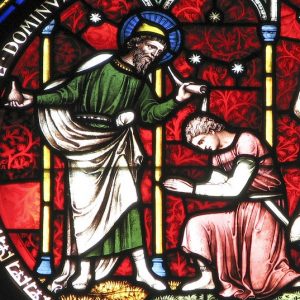by Lois Tverberg
“I will set him over my house and my kingdom forever; his throne will be established forever.” 1 Chronicles 17:14
We know that the people of Jesus’ day were expecting a Messiah, hoping that he would deliver them from their enemies and that he would have a great kingdom. One question that we should be curious about is is what scriptures were the source of that belief.
Although the hints about the Messiah start in Genesis, it is in David’s time that God begins to make clear statements about his intentions for the future. At one point, David wants to build a temple for God, but then Nathan the prophet tells him…
“When your days are over and you go to be with your fathers, I will raise up your offspring to succeed you, one of your own sons, and I will establish his kingdom. He is the one who will build a house for me, and I will establish his throne forever. I will be his father, and he will be my son. I will never take my love away from him, as I took it away from your predecessor. I will set him over my house and my kingdom forever; his throne will be established forever.” (1 Chronicles 17:11-14)
This prophecy has been understood as having a double fulfillment. It was first fulfilled in Solomon, who built the temple, but did that which God had forbidden – he amassed a fortune and married foreign wives. His kingdom broke apart within a few years of his death. But the prophecy also spoke about a “Son of David” who would come, who would have a kingdom without end. God would be his father, and he would be God’s son. The Son of David will also be the Son of God!
The Gospels are careful to point out that Jesus has descended from David from both parents because of this prophecy. Many other prophecies talk about the “Branch” from David’s tree (Jeremiah 23:5), or the “shoot from the stump of Jesse,” David’s father (Isaiah 11:1). They are using the image of a family as a tree, and Jesus as a “branch” means that he is a descendant.
This also explains why Jesus kept speaking about the kingdom of God in his ministry — because as the Messiah, he was the King that God had sent to rule over his kingdom that would never end! And if we follow him, enter his kingdom, we will live with him forever.
For more on this topic, see “The Messiah will Build God’s House.”


